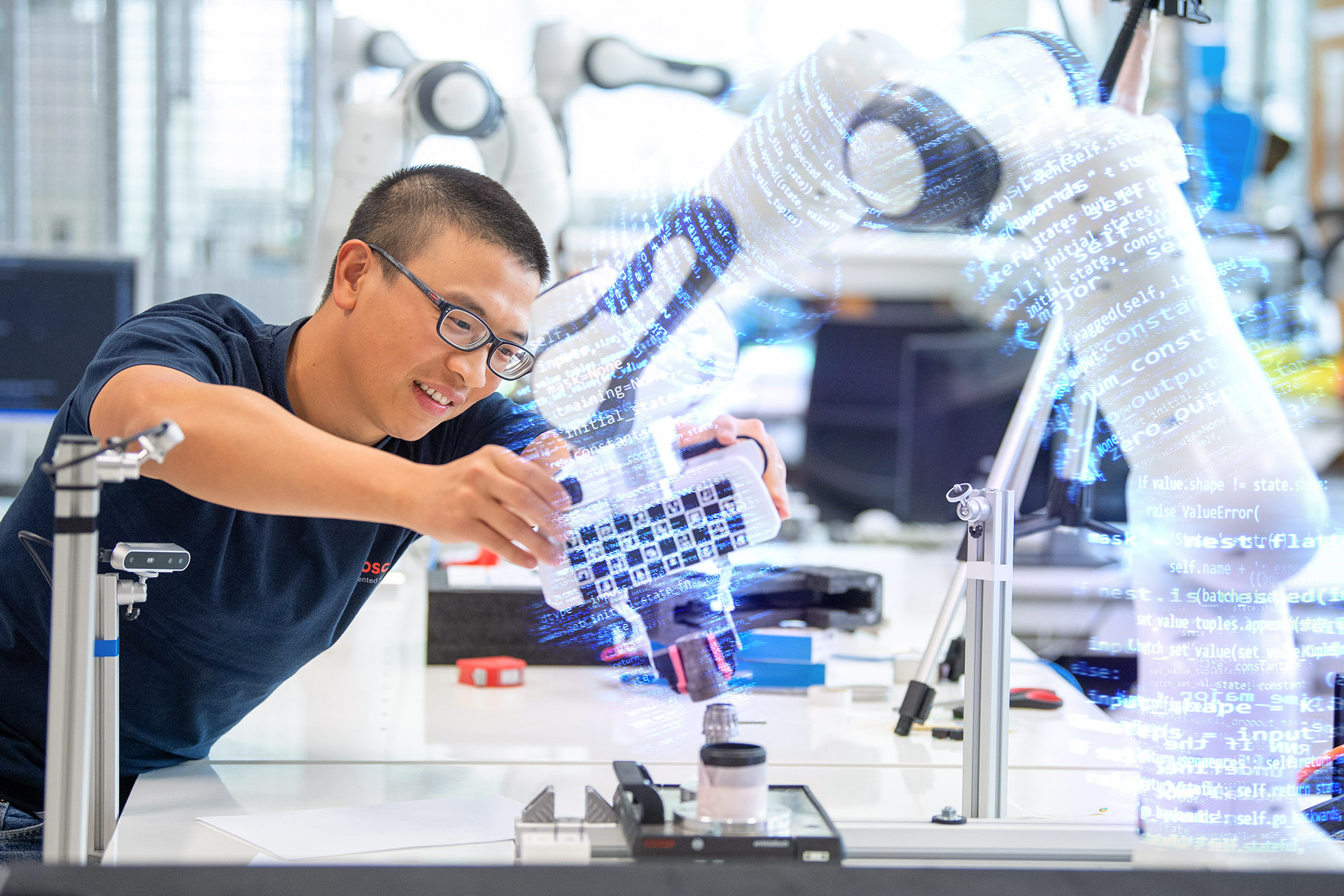Interview with Sven Hamann, Managing Director at Bosch Connected Industry
Artificial intelligence is considered a key technology for industrial applications. Sven Hamann, Managing Director of Bosch Connected Industry explains the concrete benefits for manufacturing companies.
futur: A Germany-wide survey by Bosch indicates that AI is highly popular as a key technology for industrial applications. What hopes do people associate with it?
Hamann:
We do indeed sense that the industrial application of AI is currently gaining momentum. There is a great deal of curiosity and openness towards trying out AI. Many are hoping for greater efficiency, better work results, or greater safety in the operation of plants. Others see the technology as a driver of complexity and are concerned about a loss of control. That is why I am convinced that AI has to prove how it can be beneficial. We see this in products in the consumer segment: In this area, AI has now reached a level of maturity that provides a high level of benefit, and where I, as a user, tend to experience a reduction in complexity, such as in speech recognition.
I believe that AI will also gain a lot of momentum in industrial production. In our plants, where we integrated AI solutions into specific use cases at a very early stage, we now see that we can leverage enormous potential. We are talking about savings amounting to several million euros per plant. These are pivotal aspects that will profoundly accelerate the introduction of AI in companies.
futur: Which specific AI applications are already being used at Bosch?
Hamann:
In manufacturing, we are already employing AI in a number of places. The classic example is certainly predictive maintenance. In this scenario, the current condition of the machine is monitored via sensor data. We use the data to detect malfunctions even before a production standstill can occur. By analyzing data from our manufacturing processes, we can gain new knowledge regarding the production processes. We then use this knowledge to optimize production parameters or cycle times. We also use AI in intralogistics. In a pilot project, we are currently optimizing the material supply dynamically during ongoing operation, thereby constantly adap-ting it to current conditions.
futur: Despite its many advantages companies often still find it difficult to use AI technology. In your view, what are the biggest obstacles?
Hamann:
One obstacle is in fact the degree of digitalization itself, which still varies greatly from one industry and company to another. The very first step is the availability of data throughout the entire life cycle of a product, i.e., starting with the product creation process, design, development, production, and ultimately its operation. This data must be prepared in such a way that makes it meaningful. If it is enriched with semantic data structures, for example, companies can tap its potential in two directions. For one, the feedback loop can be used to optimize the next generation of products, or to adapt products to specific user behavior. The second is to tap into business models. This constitutes the foundation. Before that, it is quite difficult to use methods like AI. This groundwork is at different stages of completion in various companies.
Another obstacle is the availability of expertise. Artificial intelligence, as previously mentioned, carries a very high potential. However, its benefits only emerge in the domain. This means that companies need to bring together domain experts such as materials scientists or production engineers with AI experts. I think it is key to actually view this digital transformation as being a transformational project. It starts with creating transparency – concerning the goals I am pursuing, about planning and implementation – and giving employees the opportunity to get involved, help shape things, and further develop themselves. The key aspect here being lifelong learning.
 Fraunhofer Institute for Production Systems and Design Technology
Fraunhofer Institute for Production Systems and Design Technology

